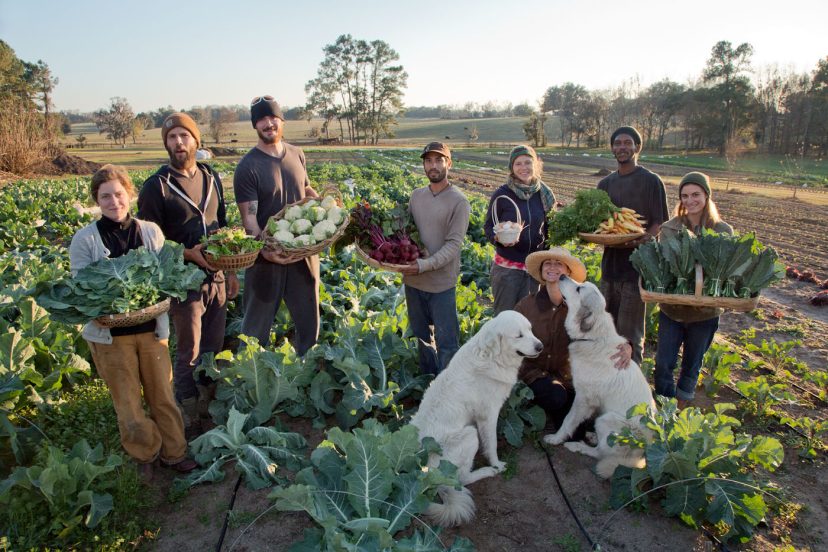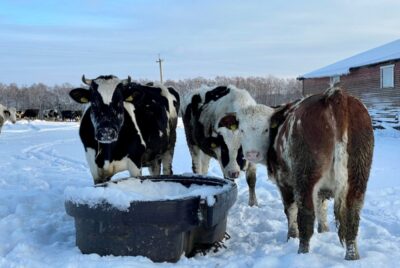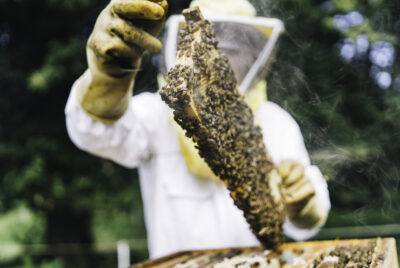Homesteading in Florida
"We may earn a commission from purchases made using our links. Please see disclaimer."
Imagine waking up to the gentle Florida sun, surrounded by the sounds of nature, and tending to your very own homestead. Homesteading is a lifestyle that embraces self-sufficiency, sustainability, and a deeper connection with the land. In this article, I will share my passion for homesteading in Florida and provide valuable insights and suggestions for those looking to embark on this fulfilling journey.
What is Homesteading?
 Homesteading is the practice of living a self-reliant lifestyle, where individuals or families strive to produce their own food, generate energy, and create a sustainable living environment. It involves skills such as gardening, raising livestock, preserving food, and minimizing reliance on external resources.
Homesteading is the practice of living a self-reliant lifestyle, where individuals or families strive to produce their own food, generate energy, and create a sustainable living environment. It involves skills such as gardening, raising livestock, preserving food, and minimizing reliance on external resources.
Homesteading connects people back to the land and traditional ways of living. It emphasizes independence, resourcefulness, and resiliency in providing for one’s basic needs. Homesteading integrates traditional knowledge with innovative technology for modern self-sufficiency.
The homesteading movement has grown considerably in recent years as people seek greater food security and autonomy. At its core, homesteading is about living sustainably, treading lightly on the earth, and nourishing the community.
Homesteading in Florida: An Overview
Florida, with its diverse climate and fertile soil, offers a fantastic opportunity for homesteaders to thrive. Whether you dream of cultivating a bountiful garden, raising chickens for fresh eggs, or harnessing solar power, Florida provides an ideal environment for homesteading endeavors.
The sub-tropical environment allows for year-round cultivation of fruits and vegetables not possible in other regions. The warmer climate reduces heating costs and allows for comfortable outdoor living year-round. Florida’s coastal regions offer abundant seafood and opportunities for small-scale aquaculture.
Proximity to the ocean provides humidity and rainfall beneficial for growing crops. Homesteading communities are abundant, providing support and resources for new homesteaders.
Climate and Environment in Florida
 Florida’s climate is unique, with warm temperatures and high humidity. It is essential for homesteaders to understand the specific challenges and advantages this climate presents. The long growing season, ample rainfall, and abundant sunlight create favorable conditions for agriculture and sustainable living projects. The sub-tropical environment allows for year-round cultivation of fruits and vegetables not possible in other regions.
Florida’s climate is unique, with warm temperatures and high humidity. It is essential for homesteaders to understand the specific challenges and advantages this climate presents. The long growing season, ample rainfall, and abundant sunlight create favorable conditions for agriculture and sustainable living projects. The sub-tropical environment allows for year-round cultivation of fruits and vegetables not possible in other regions.
The climate allows for comfortable outdoor living and recreation year-round. Humidity and heat require planning for livestock shelter and cooling. Afternoon thunderstorms provide ample rainwater harvesting opportunities. Frosts rarely damage plants, extending the growing season. Wind patterns from the ocean provide natural ventilation and cooling breezes.
Benefits of Homesteading in Florida
- Access to Fresh and Healthy Food: By growing your own fruits, vegetables, and herbs, you can enjoy a constant supply of nutritious, organic produce.
- Reduced Environmental Impact: Homesteading promotes sustainable practices, reducing reliance on industrial agriculture and minimizing carbon footprints.
- Financial Independence: By producing your own food and energy, you can significantly reduce monthly expenses and achieve greater financial stability.
- Enhanced Quality of Life: Living closer to nature, engaging in physical activities, and enjoying the serenity of a homestead can lead to a more fulfilling and balanced life.
Finding the Perfect Homestead
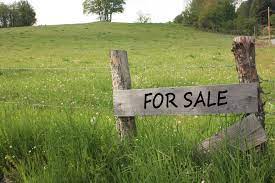 When searching for a suitable homestead in Florida, consider factors such as location, access to resources, and zoning regulations. Research areas with fertile soil, proximity to water sources, and a climate that aligns with your goals. Look for properties that offer sufficient space for your envisioned homesteading activities. Seek out rural and agricultural areas that provide privacy and room to expand your homestead over time.
When searching for a suitable homestead in Florida, consider factors such as location, access to resources, and zoning regulations. Research areas with fertile soil, proximity to water sources, and a climate that aligns with your goals. Look for properties that offer sufficient space for your envisioned homesteading activities. Seek out rural and agricultural areas that provide privacy and room to expand your homestead over time.
Prioritize locations near community resources and homesteading networks. Evaluate road access, utilities, and internet availability when selecting a property. Consider visibility and seclusion based on your homesteading goals and lifestyle. Look for diverse microclimates and natural features like woods, wetlands, and elevations. Review county zoning laws regarding livestock, agriculture, and dwelling codes.
Essential Skills for Homesteading in Florida
To succeed in homesteading, it is crucial to develop certain skills:
- Gardening: Learn about crop rotation, companion planting, and organic pest control techniques to maximize your garden’s productivity.
- Livestock Management: Familiarize yourself with the care, feeding, and shelter requirements of animals suitable for Florida’s climate, such as chickens, goats, or bees.
- Food Preservation: Master techniques like canning, fermenting, and dehydrating to extend the shelf life of your homegrown produce.
- Basic Carpentry: Acquire basic carpentry skills to build and maintain structures on your homestead.
Sustainable Agriculture and Gardening
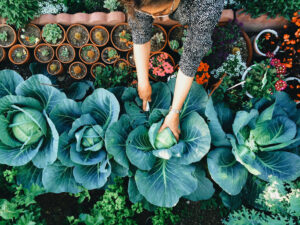 Florida’s climate allows for a diverse range of crops to thrive. Consider incorporating permaculture principles and practices to create a sustainable and low-maintenance garden. Embrace organic gardening methods, companion planting, and water-saving techniques like drip irrigation to conserve resources and enhance productivity. Experiment with heat-loving and tropical varieties like okra, sweet potatoes, and papaya.
Florida’s climate allows for a diverse range of crops to thrive. Consider incorporating permaculture principles and practices to create a sustainable and low-maintenance garden. Embrace organic gardening methods, companion planting, and water-saving techniques like drip irrigation to conserve resources and enhance productivity. Experiment with heat-loving and tropical varieties like okra, sweet potatoes, and papaya.
Tailor your garden plan to Florida’s seasons – cool weather crops in winter, heat lovers in summer. Enrich soil regularly with compost and natural amendments to retain nutrients. Use integrated pest management and grow native plants to control pests naturally. Explore hydroponics and aquaponics to maximize production on small plots. Plan crop rotations, interplanting, and succession planting to improve yields.
Raising Livestock in Florida
Livestock can play an integral role in a Florida homestead. Chickens provide fresh eggs, goats offer milk and meat, and bees aid in pollination and honey production. Ensure you provide appropriate shelter, nutritious feed, and proper care to keep your animals healthy and productive in Florida’s climate. Select breeds adapted to heat and humidity for best results, like Brahman cattle or barred rock chickens.
Provide shade, cooling, and ventilation for all livestock housing. Supplement feed with garden produce and scraps to reduce costs. Monitor for heat stress and adjust schedules to avoid the hottest parts of the day. Plan rotational grazing on divided pastures to prevent overgrazing. Partner with local farmers for breeding availability, veterinary services, and resources.
Harnessing Solar Power
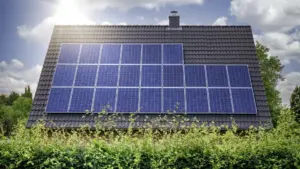 With abundant sunshine throughout the year, Florida is an ideal location for harnessing solar power. Installing solar panels can significantly reduce or eliminate your reliance on the grid, allowing you to generate clean energy and lower your electricity bills. Consider contacting reputable solar energy providers to explore your options.
With abundant sunshine throughout the year, Florida is an ideal location for harnessing solar power. Installing solar panels can significantly reduce or eliminate your reliance on the grid, allowing you to generate clean energy and lower your electricity bills. Consider contacting reputable solar energy providers to explore your options.
Calculate your energy needs and research rebates to make solar power affordable and maximize savings.
Consider grid-tied, off-grid, and hybrid solar systems to meet energy needs. Size your solar array, batteries, and hardware to cover daily and future demands. Install south-facing panels at optimal tilt angles for maximum production. Use solar to power pumps, electric fencing, lights, and appliances. Connect solar thermal systems to provide hot water and heating. Maintain panels and equipment properly to extend system lifetime.
Water Management
Florida’s high rainfall offers a unique opportunity for rainwater harvesting and conservation. Implementing rain barrels, swales, and other water-saving techniques can help you optimize water usage and reduce your dependence on municipal water sources. Direct rainwater runoff into ponds for irrigation reservoirs.
Landscape with native plants to reduce irrigation requirements. Mulch generously around plants to retain moisture. Monitor soil moisture levels and water early in the day to reduce evaporation. Drain fields, swales and berms can redirect stormwater flows. Composting toilets and greywater systems reduce water consumption and treat waste on-site.
Building a Community
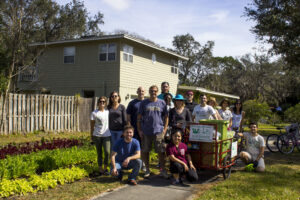 Homesteading doesn’t mean isolating yourself from society. Building a community of like-minded individuals can be immensely beneficial. Join local homesteading groups, attend workshops and events, and share your knowledge and experiences. Collaborating with others can create a support network and provide opportunities for bartering or sharing resources. Volunteer at community gardens and farmers’ markets to expand your homesteading network.
Homesteading doesn’t mean isolating yourself from society. Building a community of like-minded individuals can be immensely beneficial. Join local homesteading groups, attend workshops and events, and share your knowledge and experiences. Collaborating with others can create a support network and provide opportunities for bartering or sharing resources. Volunteer at community gardens and farmers’ markets to expand your homesteading network.
Exchange produce, seeds, and livestock breeding with homesteading neighbors. Share equipment and labor for large projects. Barter your skills and excess harvests within the community. Develop relationships with local farmers for mentorship and access to resources. Offer your land for communal events, workshops, and learning experiences.
Homesteading Challenges and Solutions
Homesteading in Florida may come with its share of challenges. Some common issues include extreme weather events, pest management, and zoning restrictions. To overcome these challenges:
- Plan for Resilience: Design your homestead with resilience in mind, using durable materials, backup power systems, and protective measures.
- Implement Integrated Pest Management: Utilize natural pest control methods, companion planting, and beneficial insects to minimize pest damage without resorting to harmful chemicals.
- Understand Zoning Regulations: Familiarize yourself with local zoning regulations and ensure your homesteading activities comply with the rules. Seek permits if necessary and engage with local authorities to address any concerns.
Conclusion
Homesteading in Florida offers a unique opportunity to live a sustainable, self-sufficient lifestyle while embracing the beauty of nature. From cultivating your own food to harnessing solar power, the possibilities are endless. By acquiring essential skills, adapting to Florida’s climate, and building a supportive community, you can embark on a fulfilling homesteading journey and create a harmonious life connected to the land.
The rewards of homesteading come from self-reliance, innovation, and establishing roots in a natural setting. Start small and build upon successes to steadily increase your homesteading capabilities over time. Homesteading requires foresight and flexibility – be ready to problem-solve challenges as they arise. Focus on simplicity and avoid overly complex systems for the most manageable and enjoyable homestead. Share your unique homesteading experiences to motivate and inspire other like-minded individuals.
FAQs
1. Is homesteading in Florida suitable for everyone?
Homesteading in Florida can be rewarding for those who enjoy self-sufficiency, nature, and sustainable living. However, it requires dedication, hard work, and a willingness to adapt to the specific challenges of the region.
2. What are some suitable crops for homesteading in Florida?
Florida’s climate is ideal for growing crops like tomatoes, peppers, citrus fruits, strawberries, and various herbs. Additionally, consider incorporating native plants and perennials to enhance biodiversity and reduce maintenance efforts.
3. How can I deal with hurricanes or extreme weather events while homesteading in Florida?
Preparing your homestead for hurricanes involves securing structures, having emergency supplies, and developing an evacuation plan if necessary. Stay informed about weather updates and follow official guidelines to ensure your safety and the well-being of your homestead.
4. Can I sell the produce from my homestead in Florida?
Depending on local regulations, you may be able to sell your homegrown produce. Research the requirements for selling agricultural products in your specific area and consider exploring local farmers’ markets and community-supported agriculture programs.
5. How can I connect with other homesteaders in Florida?
To connect with fellow homesteaders, join online forums, social media groups, or local homesteading associations. Attend workshops, events, and agricultural fairs in your community to meet like-minded individuals and share knowledge and experiences.

